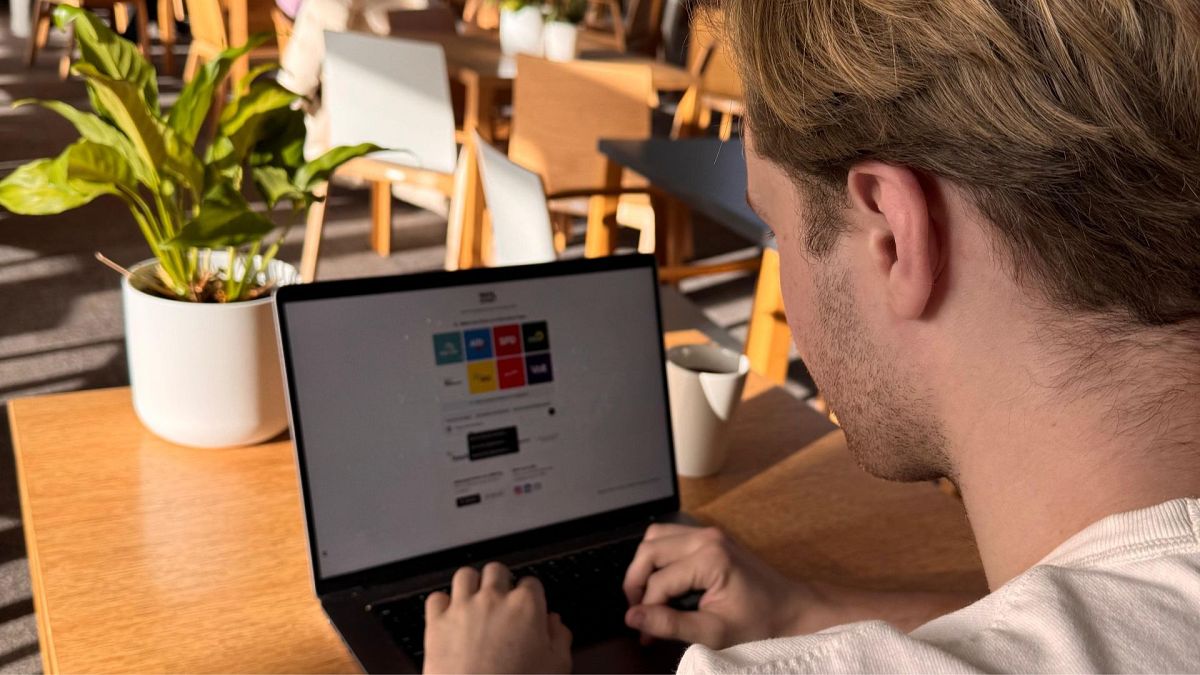Europe
German AI chatbot seeks to make it easier for voters to decide

Germany’s Battle for Votes: How an AI Chatbot Is Helping Undecided Voters
Introduction: The Challenge of Undecided Voters
As Germany prepares for its general election, an estimated 30% of voters remain undecided about which political party to support. With millions of Germans set to cast their ballots, tools like the Wahl-O-Mat quiz and the newly developed Wahl.chat AI chatbot are stepping in to help these undecided voters make informed decisions. Wahl-O-Mat has long been a go-to resource for voters, providing a political quiz that matches users with the party that best aligns with their values. However, for those who want to delve deeper without sifting through hundreds of pages of political manifestos, Wahl.chat offers a groundbreaking solution.
Developed by a team of German doctoral students at the University of Cambridge, Wahl.chat is an AI-powered chatbot designed to make politics more accessible and user-friendly. By allowing users to ask specific questions about political parties and their policies, the chatbot aims to simplify the decision-making process for voters. Euronews spoke with Michel Schimpf, one of the developers, to explore how this innovative tool works, its potential to stay impartial, and its long-term goals.
The Birth of Wahl.chat: A Chatbot with a Mission
The idea for Wahl.chat was born out of casual lunchtime conversations among the five-member team of German researchers at Cambridge University. Inspired by the approaching election and a desire to contribute to the democratic process, the team decided to act. Within a month, the chatbot was up and running, quickly gaining traction as a valuable resource for voters.
The team’s mission is clear: to make politics more transparent and engaging for the average person. With Wahl.chat, users can ask specific questions about a party’s stance on issues like education or the economy. For example, a user might ask, “What does Party X propose for improving education?” or “How does Party Y plan to boost the economy?” The chatbot then provides answers based on the party’s official election manifesto. Additionally, users can compare multiple parties’ positions on the same issue, saving time and effort that would otherwise be spent sifting through lengthy documents.
How Wahl.chat Works: Simplifying Complex Politics
The chatbot’s functionality is straightforward yet powerful. Users can select a political party and ask specific questions about their policies. The AI then retrieves relevant information from the party’s election manifesto, providing clear and concise answers. This feature is particularly useful for voters who want to understand a party’s position on specific issues without wading through hundreds of pages of text.
Another key feature of Wahl.chat is its ability to compare multiple parties. By selecting several parties and asking about their positions on a particular topic, users can easily see where the parties stand and how their policies differ. This comparison tool is invaluable for undecided voters trying to find the party that best aligns with their values.
Reception and Feedback: A Tool for Teachers, Politicians, and Voters Alike
The response to Wahl.chat has been overwhelmingly positive. Since its launch, the chatbot has been praised for its ability to make complex political information accessible to a broad audience. Teachers have incorporated it into their classrooms to help students prepare for the election, while politicians have used it to gain insights into competitors’ platforms—and even to better understand their own parties’ manifestos.
Schimpf notes that while feedback has been largely positive, there is still room for improvement. The team is actively working to incorporate more sources, including recent speeches by politicians, into the chatbot’s database. By doing so, they hope to create a more comprehensive and personalized experience for users.
The Long-Term Vision: Expanding Accessibility and Transparency
Looking ahead, the team behind Wahl.chat has ambitious goals. They plan to integrate more sources of political information, such as parliamentary speeches and press releases, into the chatbot’s database. This expansion would allow users to gain a deeper understanding of political discourse beyond just election manifestos.
The team also envisions expanding the tool beyond Germany’s borders. With interest already expressed by individuals from other countries, the potential for Wahl.chat to become a global resource is immense. Schimpf believes that tools like Wahl.chat are essential for democracies worldwide, as they empower citizens to make informed decisions and engage more actively in the political process.
Overcoming Challenges: The Cost of Democracy and the Quest for Objectivity
Despite its success, Wahl.chat faces challenges. One of the biggest hurdles is the cost of maintaining the chatbot, which currently runs at approximately €500 per day. This financial burden could limit the tool’s accessibility and scalability in the future.
Another critical challenge is ensuring the chatbot’s impartiality. While the AI is programmed to remain neutral and avoid judgmental language, Schimpf acknowledges that maintaining objectivity is an ongoing effort. The team has implemented safeguards, such as allowing users to click through to original sources, to ensure transparency and accountability. By providing direct access to the raw data, Wahl.chat empowers users to verify the information themselves, reducing the risk of bias.
Conclusion: The Future of Democracy in the Digital Age
As Germany’s election approaches, tools like Wahl.chat are redefining how voters engage with politics. By leveraging AI to simplify complex information, the chatbot is making it easier for undecided voters to make informed decisions. Its success highlights the potential for technology to enhance democracy by increasing transparency and accessibility.
While challenges like cost and objectivity remain, the team’s dedication to improving the tool and expanding its reach is a testament to the power of innovation in the service of democracy. As Wahl.chat continues to evolve, it stands as a promising example of how technology can empower citizens and strengthen democratic processes around the world.


















